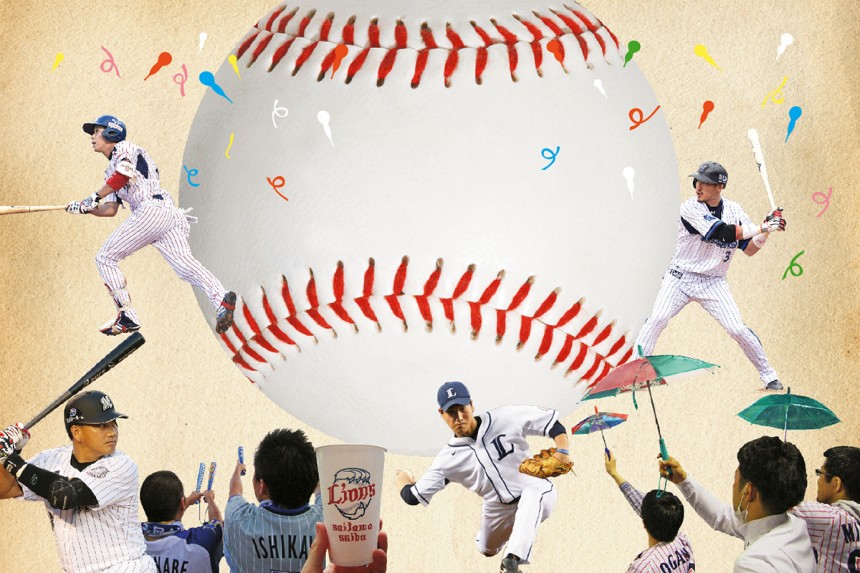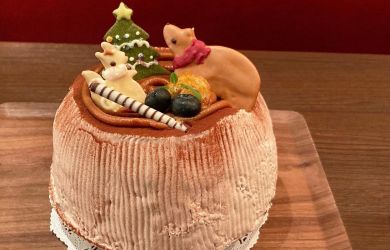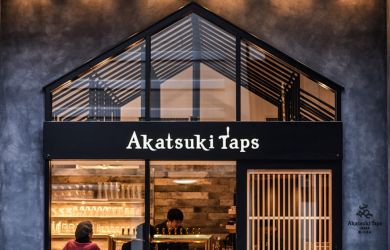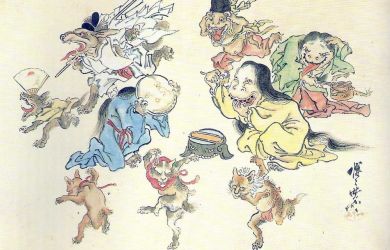
September 4, 2014
Root, Root, Root for the Home Teams
A Kanto area baseball primer
Baseball and summer go together like edamame and a canned chu-hai. Or is that a hotdog and a cold beer? It doesn’t really matter, because you can find both the American ballpark classics and their Japanese cousins at stadiums across the Nippon Professional Baseball league. In the Kanto area, we’re particularly blessed with five NPB teams located in and around Tokyo, each with its own personality and unique stadium experience. Here’s a rundown of the teams you can—and should—check out as the summer winds down and the playoff race heats up.
CENTRAL LEAGUE
Tokyo Yakult Swallows
Meiji Jingu Stadium | Shinjuku Ward, Tokyo
Tokyo’s more likable team plays its games in an exceptional, historic ballpark. Opened in 1926, Meiji Jingu Stadium has forgotten more baseball than you’ll ever know. It holds the distinction of being one of the few remaining stadiums in the world where Babe Ruth played, which happened during a landmark 1932 exhibition game with a U.S. all-star squad comprised of the Babe, Lou Gehrig and friends. Today, Jingu is home to the Swallows’ Wladamir Balentien, who last year hit 60 home runs to break Japan’s single-season record, which had stood since 1964 [See “Diamond Dogs,” Metropolis #1016, Sep 12, 2013]. Seeing Balentien hammer moon balls at the Shinjuku skyline can be worth the full price of admission. He’s not alone, either: Swallows’ batters (including 22-year-old phenom Tetsuto Yamada, who has 22 home runs and is batting a cool .340 at press time) have combined to lead the NPB in runs scored and batting average. There have been more than enough fireworks coming out of the batter’s box to make up for anyone who was too busy during hanabi season.
Yakult fans have perhaps the most famous celebration in Japan: after every run they open up mini-umbrellas and sing “Tokyo Ondo,” a traditional festival song. The stadium experience at Jingu is also the most English-friendly, as the team’s marketing has been going out of its way to cater to fans who don’t speak the local language. Famous fans of the Swallows include novelist Haruki Murakami, who tells that he was first inspired to try writing a book while watching a Swallows game from Jingu’s outfield seats in 1978.
Gaienmae
Make a day out of it
Hop on a train in any direction, and you’re within just a few stops of bustling areas like Shibuya, Roppongi and Yoyogi Park.
Upcoming home schedule:
Sep 5-7 vs. Yomiuri Giants, Sep 15-17 vs. Hanshin Tigers, Sep 23-25 vs. Hiroshima Toyo Carp
Yokohama DeNA BayStars
Yokohama Stadium | Yokohama, Kanagawa
The BayStars are like that really annoying high school friend who had rich parents. You put up with his endless chattering about Star Wars because you couldn’t give up the extravagant pool parties, big-screen TV for movie night and endless supply of ice cream. BayStars games are all about making the best of a bad situation. Since their inception, Yokohama has been the most miserable team in Japanese baseball—by far. To keep the fans from revolting, team ownership has become known for pulling out all the stops to put on a good show. Pre-game DJs? Dance teams? A beer garden in front of the stadium? You bet. Anything to distract you from the on-field product. Since DeNa took ownership in 2012, it has been carefully trying to distance itself from the failures of the past.
Yokohama Stadium has a modern, cosmopolitan air that feels more distinctly North American than other Kanto ballparks. The hardcore fans in the outfield are passionate, standing and cheering for the entire game. This season the BayStars have even rallied to a longshot at a berth in the Climax Series, so this may be the time to watch not just for the fun in the stands but for the play on the field as well.
(The station bells play the BayStars’ fight song)
Make a day out of it
The stadium is in a hip, busy area with lots to do. Chinatown, Yamashita Park and the Minato Mirai district are all within walking distance.
Upcoming home schedule
Sep 5-7 vs. Hiroshima Toyo Carp, Sep 9-11 vs. Tokyo Yakult Swallows, Sep 15-17 vs. Chunichi Dragons, Sep 23-25 vs. Hanshin Tigers
Yomiuri Giants
Tokyo Dome | Bunkyo Ward, Tokyo
Most teams shed blood, sweat and tears in their pursuit of historic baseball glory. Not the Giants. Japan’s most (in)famous team simply opens its hefty wallet, coerces the best players in the country to Tokyo Dome and raises yet another championship banner to the ceiling. Ho hum.
Without question, the kyojin are Japan’s most successful franchise, and it’s not even close. They boast 35 Central League pennants and 22 Japan Series championships, both tops by a large margin. Even their exports are great: outfielder Hideki Matsui was a multi-year all-star in Major League Baseball, and relief pitcher Koji Uehara was a big part of the Boston Red Sox’s MLB World Series victory last year. That success makes the Giants the default darlings for people without a local team and those not clever enough to cheer for anyone but the perennial favorites. The team is doing very well again in 2014 (yawn), and the boys are currently on pace to earn their third straight Central League title. They’re riding 24-year-old pitcher Tomoyuki Sugano, who has a 9-5 record and leads the Ce-League with a 2.58 ERA.
Despite being Japan’s largest stadium, Tokyo Dome’s games are frequently sold out, and desperate folks who can’t stand to be left behind by the bandwagon can even buy standing-room-only tickets for ¥1,000. Adding to their record of notoriety, the Giants have been caught up in numerous scandals over the years, including illegal salaries that exceeded the NPB’s salary cap, constant rumblings about shady draft dealings and the 2012 story of manager Tatsunori Hara paying ¥100 million to organized crime associates who threatened to reveal his extramarital affair. Despite (or because of) all this, fans dole out equal measures of unbridled love or stomach-cramping hatred, and it seems nearly impossible that anyone could fall in the middle (except your humble writer, of course, who does an outstanding job of remaining neutral on all topics).
Suidobashi, Korakuen
Make a day out of it
The Tokyo Dome also houses Japan’s Baseball Hall of Fame, which is very much worth a visit. The adjacent Tokyo Dome City is an entertainment complex complete with an outdoor amusement park, the LaQua spa and plenty of restaurants.
Upcoming home schedule
Sep 12–14 vs. Yokohama DeNA BayStars, Sep 19–21 vs. Tokyo Yakult Swallows, Oct 3–4 vs. Yokohama DeNa BayStars
PACIFIC LEAGUE
Chiba Lotte Marines
QVC Field | Chiba City, Chiba
Blood! Guts! Roundhouse kicks to the head! These are all-too-familiar sights at the Chiba Marines’ QVC Field—well, for fans of the classic 1993 video game title Tekken, which uses the stadium as one of its combat locales. Though Marines games tend to be (slightly) more civilized affairs, you can say this for Lotte fans: they’ll never let you take a mid-game snooze. They’re an infamously loud and raucous crew, known for intimidating the opposing team and even their own players if they’re not performing up to par. Games at QVC Field generally have a really nice atmosphere, though the weather can be a bit unpredictable due to the stadium being right on the shore of Tokyo Bay. That means warm days can quickly become chilly evenings, and gusty winds often sail through.
Definitely take time before or after the game to visit the Marines’ Museum beside the stadium. The museum is a reverent homage to the team’s history, which began in 1950 as the Mainichi Orions, who went on to win the inaugural Japan Series. The museum, which is free, has a great collection of old-time memorabilia and kid-friendly interactive displays. Wander around the Makuhari area a bit and you may come across Valentine Dori, the street named after beloved ex-manager Bobby Valentine, who led the Marines to the Japan and Asia Series championships in 2005.
Kaihinmakuhari
Make a day out of it
QVC Field is tucked between Makuhari Beach and the Makuhari Seaside Park, both of which are great places for throwing the ball around or having lunch before the game. The Makuhari area has a fair share of attractions, from an outlet shopping mall to the beautiful Mihama-en Japanese garden.
Upcoming home schedule
Sep 5-7 vs. Tohoku Rakuten Golden Eagles, Sep 8-11 vs. Saitama Seibu Lions, Sep 19-21 vs. ORIX Buffaloes, Sep 23-26 vs. Hokkaido Nippon-Ham Fighters, Sep 28 vs. ORIX Buffaloes
Saitama Seibu Lions
Seibu Dome | Tokorozawa City, Saitama
Hoero Lions! The pride of Saitama is the Pacific League’s historically best team, with 21 league pennants, 13 Japan Series titles and an Asia Series championship in 2008 among its accomplishments. The reasons to check out a game start with the team’s stomping grounds. The Seibu Dome, originally built as an open-air stadium, is now covered by a domed roof that sits on giant legs perched outside the stadium, with a big gap between the roof and the stadium’s walls. That gives batters the bizarre opportunity to hit an out-of-the-park home run in a dome. The visual effect is neat, allowing fans to see the rain or swaying trees outside while being sheltered from the elements. It feels like being on a giant porch with 35,000 of your closest friends.
The 2014 team has made an incredible comeback in the standings. A miserable start to the season led to the firing of the team’s manager, but since then the Lions have clawed their way back into contention and have an outside shot at sneaking into the playoff picture with a month’s worth of games left to play.
Lions fans have a photo-worthy seventh-inning stretch tradition, when the fans all release balloons while loudly singing the team’s fight song. Also, stick around after the game on certain days for a chance to go down onto the field to run the bases, play catch or practice fielding—Wednesday is “Women’s Night,” Thursday is “Salaryman Night” and weekends are “Family Days.” Stay away during the dog days of summer, though, as the heat and humidity tend to stagnate under the roof’s bubble, turning the stands into a sweatbox.
Tickets are cheap and so are the concessions: a ¥500 beer is the best deal among the five Kanto teams. Notable Lions alumni include pitcher Daisuke Matsuzaka, who dominated the NPB during the early 2000s before finding success in the North American major leagues.
Seibukyujo-mae
Make a day out of it
Pay no mind to the unflattering “Dasaitama” (“tacky Saitama”) nickname with which the prefecture has been tagged. There’s plenty of green and water around: pack yourself a picnic, take a stroll or a dip in the scenic lakes Tama or Sayama, and frolic in the parks to your heart’s content.
Upcoming home schedule:
Sep 13-15 vs. Tohoku Rakuten Golden Eagles, Sep 16-17 vs. Hokkaido Nippon-Ham Fighters, Sep 19-21 vs. Fukuoka SoftBank Hawks,Oct 2 vs. Hokkaido Nippon-Ham Fighters

イメージ(俯瞰)_Deck-Nicknamed-T-DeckOverlooking-view-image-1-390x250.jpg)



